David Shentow Park Naming Ceremony, Bram Bregman’s Speech.
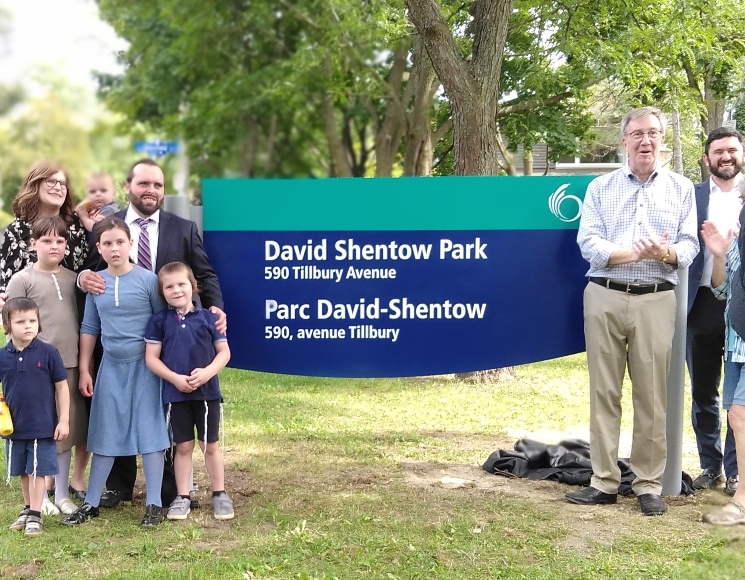
David Shentow was a courageous man.
He emerged from Auschwitz and other concentration camps with a determination to rebuild his life in a world that had forsaken people like him. That took courage. And he did so with kindness, softness, and positivity, and hope in the decency of every stranger he met. That too took courage. But where David demonstrated his greatest courage was in his dedication to the victims of Auschwitz, whose stories he told with unwavering loyalty to the struggles they endured.
David was a Holocaust survivor, one who bore the burden of the living. It was not easy for David to tell the story of Auschwitz. In fact, it was incredibly difficult and painful. To tell the story of Auschwitz was to relive the darkest and most desperate moments of his life. “Hell on earth” are the words he used. He would tell me that when he told his story, he could not sleep for days. But to not tell the story would have been to forsake the victims of the Holocaust to the fading effects of time.
David never allowed that. He mustered the courage to share his story — to relive his story — with audiences of men, women, and children who gathered by the hundreds to help David fulfill this dedication, this mission, to the victims of the Holocaust.
When David first learned there were people denying the Holocaust – denying all the suffering he went through – David knew he had to act. These are his own words and I think they say everything we need to know about this incredible human being: “I said there and then, I would crawl on my hands and knees all the way to Auschwitz-Birkenau, or anywhere else, to tell my story to anyone who was willing to listen. This is why I march and why I still speak. It’s something that I have to do, so I’m doing it. I knew I had a big job ahead of me, and I’ll do it as long as I have the energy, because once I’m gone, the second generations… all they can say is ‘My parents told me, or ‘My grandparents told me’.” That’s another reason why I talk to schools. Because when I talk about it, I always feel I’m not the only witness anymore. All these people who hear me, they are witnesses now.”
I would like to share one story of David that I believe really speaks to both his strong sense of community, and his strong sense of humour. At the 2006 March of the Living Ceremony at Auschwitz on Holocaust Remembrance Day, David was asked to the lead the Mourner’s Prayer in front of the 10,000 people present. He felt honoured to do so, and when he came off the stage afterwards, he said to the head of the Canadian delegation and in front of his dear wife Rose: “You don’t know what a good deed you did for me. After all these years to be able to say the Mourner’s Prayer for my family and other victims, it’s like a heavy burden has been lifted off my shoulders – I feel 20 years younger!” And then without skipping a beat, with a twinkle in his eye, and a grin on his face, he looked at his beloved wife Rose and said, “ Now that I feel 20 years younger – You better watch out tonight!!” And of course, Rose – as she always did – laughed.
David was a courageous man. He was also kind and soft and hopeful. This park, which bears David’s name, is a lot like that. We stand today in David Shentow Park, a place of peace, a place of nature, a place where people from all walks of life can gather and witness each other’s humanity. It’s not just a park — it’s a testament to David’s legacy. And if we have truly learned from David, let us have the courage to use this space to make friends with those who walk these same paths, to share our stories and build community, and together, strive and take action for a better future.

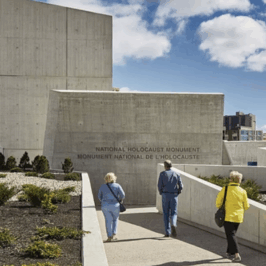
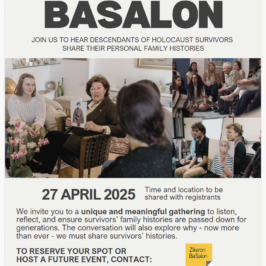

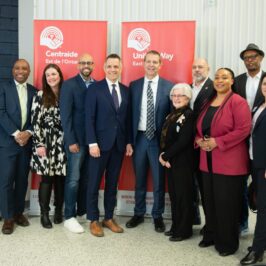
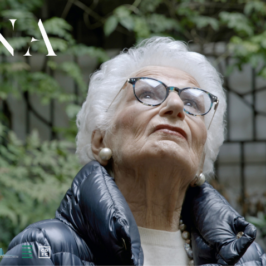
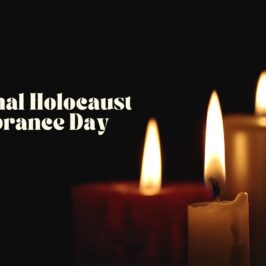
Mary Redmond
David was one of the dearest people I have had the pleasure of ever meeting Rose was equally dear to me. I am so pleased to hear about the park named in his honor.
Mary Redmond
Floralove Katz
David Shentow – was a remarkable, courageous, humorous, determined, resilient, devoted Husband, Father, Educator, and Cherished Friend. Thank you David, for teaching us how to be better human beings and extending – (through your own dignity and pain) – your personal knowledge of the Holocaust “experience”.
Merle HM
It was difficult to listen to David ‘s stories but oh so meaningful. How anyone could possibly ignore his words or deny the holocaust, is beyond understanding.
I am very proud of having met and spoken with David; he was a humble and soft spoken gentleman.
Beam, your words spoke volumes.